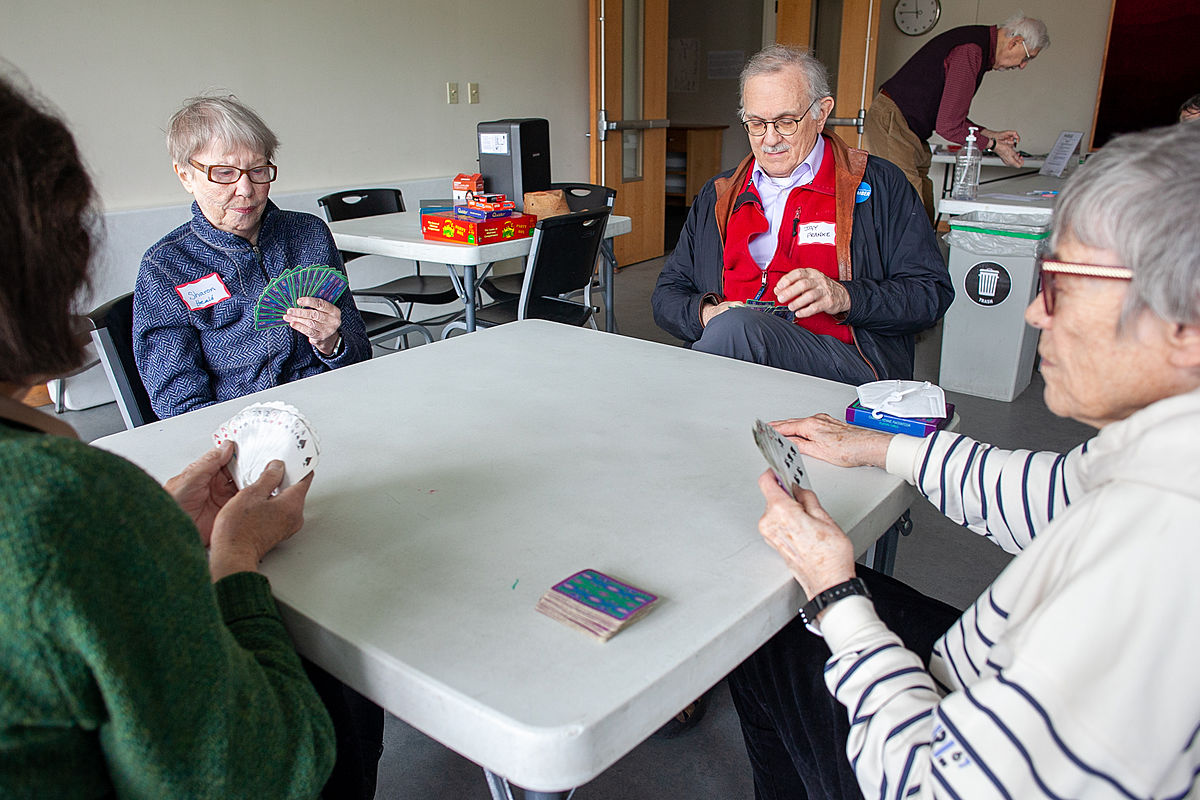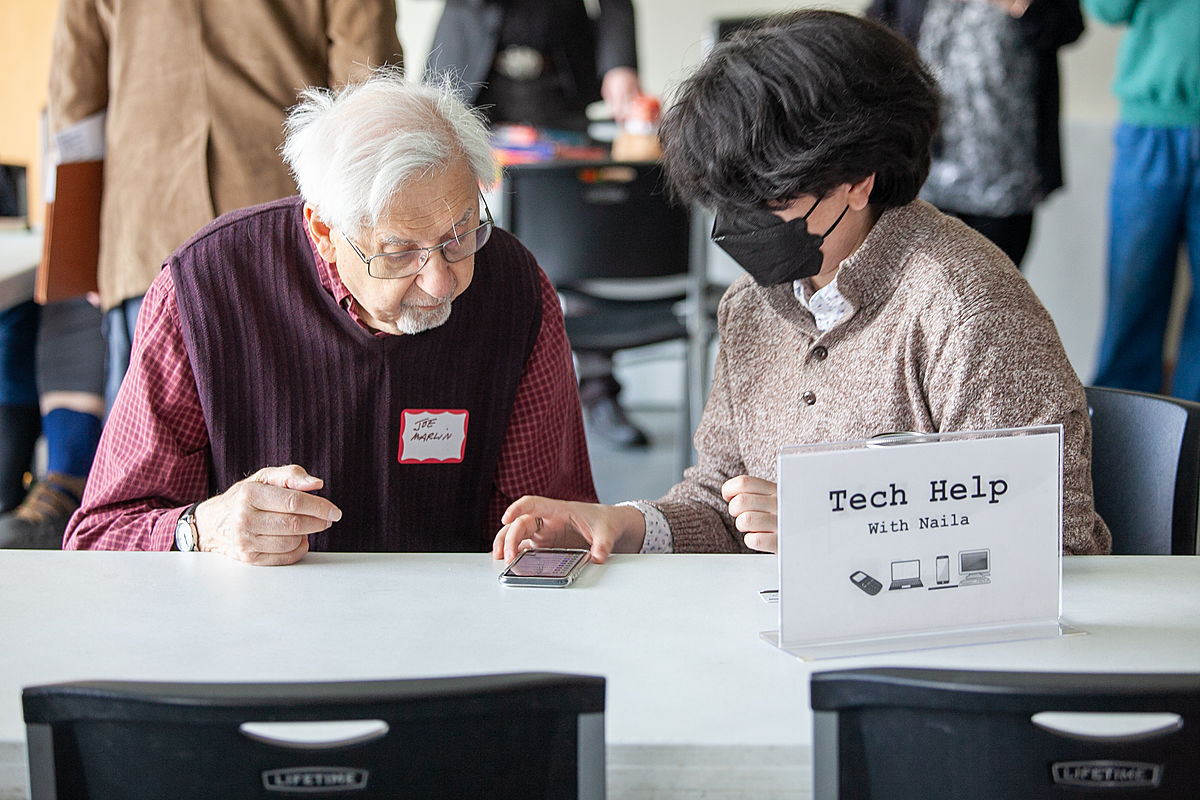Chicago Hyde Park Village (CHPV) was just getting its footing as a senior-to-senior support network in 2014 when the nonprofit’s leadership learned the University of Chicago was launching a new capacity-building program for community-based organizations. The organization became one of the first groups served by the Community Programs Accelerator. This spring, at more than 200 members strong, CHPV is graduating out of the Accelerator having created a strategic plan and system of board governance; hired their first full-time executive director and part-time staffers; and significantly expanded their vision, programs and services offered.
“Being selected in the very first year of the Accelerator was a huge boost,” Founding President and CHPV Board member Susan Alitto says. “We were grassroots. We started out as all volunteers. We had no money. This was visibility and credibility, and the fact that the University recognized us was important.”
CHPV, which is now part of a national association of similar Village groups, aims to help older Hyde Park adults stay active and engaged in their community as they age, offering regular social events, education, an informal rideshare platform, and other opportunities. The original Hyde Park group was inspired, Alitto says, by another group of seniors in Boston who formed a support network in the early 2000s to combat the isolation that often comes with age and the resulting negative impacts research shows it can have on people’s mental and physical health.
“It was a group of neighbors sitting around the kitchen table saying ‘hey, we want to stay here, we don’t want to move into an assisted living or a nursing home, we don’t want to move in with our kids, we want to stay independently in our own homes but as we get older, we recognize that we’ll probably need help—how do we make this happen?’” Alitto said. “So, we formed a Village based on that idea of neighbors helping neighbors.”

In the organization’s early years, Alitto recalls the Accelerator playing a major role in helping members think through and establish the organizational and support structures the group would need to grow. Accelerator workshops on fundraising, bookkeeping, legal issues, and other topics set CHPV up for success, she says. Access to dedicated consultants the group couldn’t have otherwise afforded at the time was also instrumental in CHPV’s ability to take on new projects and offer additional resources to local seniors.
“They disseminated really useful professional information,” Alitto says. “But it wasn’t all preaching—it was really in the form of ‘tell us what you need and we’ll try and help you get there.’”

The partnership allowed CHPV leaders to connect with other local community-based groups and entities, which eventually led to additional partnerships. The $50,000 grant and added strategic guidance CHPV received from the Accelerator when it was selected to move to the Accelerator’s highest level of support in 2020 also helped leaders develop and later refresh their mission, vision, values, and objectives; find and hire a part-time director; create a board governance manual; define roles and responsibilities; and research and implement new areas of work and resources such as a referral servicing model and measures to increase racial and socioeconomic diversity.
“In the eight years that we’ve worked with them, Chicago Hyde Park Village has been able to really embrace their mission of neighbors helping neighbors and thoughtfully build on the opportunities and support they offer their members,” Accelerator Executive Director Sharon Grant says. “It’s been an honor for the Accelerator to have been a resource along the way and to have helped them get to the place where they are now. We look forward to seeing them continue to grow, thrive, and serve our shared community.”
On a recent Wednesday morning, a few dozen CHPV members gathered at Augustana Church in Hyde Park for conversation, games, lunch, and a book and jewelry swap. The monthly meet-up is one of the cornerstones of CHPV’s social activities. Presentations focused on healthy aging, often in partnership with the University Medical Center and UChicago’s branch of the U.S. Health Resources and Services Administration’s Supporting Healthy Aging Resources & Education (SHARE) Network, are also offered regularly. “We try to think of as many ways as possible that people can get out of their homes, and now with Zoom some of them even in their homes, connecting with other people,” Board President Inagrace Dietterich says. Other chances for socialization include smaller affinity groups and Village field trips to local art museums, restaurants, and performances.

Without the Accelerator’s support in establishing the organization’s foundational structure early on, Dietterich says, the group wouldn’t be able to focus on those kinds of priorities or continue to launch new initiatives today. Recent projects have included a pilot art therapy series and an effort to build on Hyde Park’s 2020 designation as Chicago’s first Dementia-Friendly community. Both programs have been driven in part by CHPV’s first full-time executive director, Lucas Livingston, who was brought on in 2021 after the Accelerator helped CHPV in their hiring search.
“The partnership with the Accelerator brings a real level of rigor and professionalism, ensuring we’re really looking at and adhering to best practices in the industry,” Livingston says. “We like to say it takes a village, but even a village can’t do it alone.”



